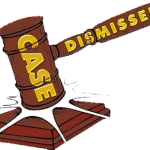By Kate Acheson
 In Hanford Exec. Mgmt. Employees Ass’n v. City of Hanford the court held that an employee Association could pursue its claims that its members faced unlawful discrimination in retaliation for a Vote of No Confidence against the City Manager. The U.S. District Court for the Eastern District of California has ruled that an Association’s retaliation claim stated a potential basis for finding several constitutional violations and rejected the City’s efforts to dismiss the lawsuit for “failure to state a claim.”
In Hanford Exec. Mgmt. Employees Ass’n v. City of Hanford the court held that an employee Association could pursue its claims that its members faced unlawful discrimination in retaliation for a Vote of No Confidence against the City Manager. The U.S. District Court for the Eastern District of California has ruled that an Association’s retaliation claim stated a potential basis for finding several constitutional violations and rejected the City’s efforts to dismiss the lawsuit for “failure to state a claim.”









